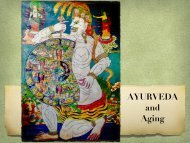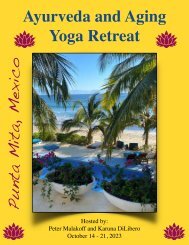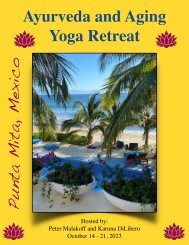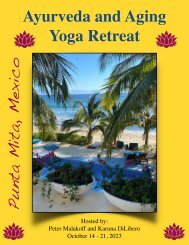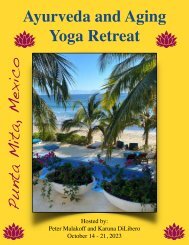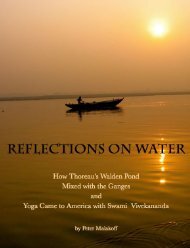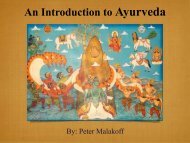How Thoreau's Walden Pond Mixed with the Ganges and Yoga Came to America with Swami Vivekananda
One early morning in 1846, during the coldest days of a New England winter, Henry David Thoreau looked out the window of his small cabin on Walden Pond and saw men cutting its ice into blocks. That ice was hauled by horse to a railroad that ran across the western edge of Walden Pond, packed into a boxcar, taken to Boston and loaded onto a clipper ship that sailed to Calcutta, India, arriving about four months later. Once there, that ice was purchased by grateful members of the East India Company. Thoreau had witnessed a small part of the global ice trade between New England and India that took place during the latter part of the nineteenth century. When Thoreau considered the ice trade, his vision sailed on metaphors far beyond the scope of business. The waters he imagined flowed both east and west and carried not just natural elements, but culture, religion and philosophy as well. He envisioned that after arriving in Calcutta, the New England ice of Walden Pond would eventually melt and run downhill where it would join with the sacred water of the Ganges. He wrote in Walden: "It appears that the sweltering inhabitants of Charleston and New Orleans, of Madras and Bombay and , drink at my well. In the morning I bathe my intellect in the stupendous and cosmogonal philosophy of the , since whose composition years of the gods have elapsed, and in comparison with which our modern world and its literature seem puny and trivial; and I doubt if that philosophy is not to be referred to a previous state of existence, so remote is its sublimity from our conceptions. I lay down the book [Bhagavad-Gita] and go to my well for water, and lo! there I meet the servant of the Bramin, priest of and and who still sits in his temple on the Ganges reading the , or dwells at the root of a tree with his crust and water jug. I meet his servant come to draw water for his master, and our buckets as it were grate together in the same well. The pure Walden water is mingled with the sacred water of the Ganges." This book tells the story of these waters . . .
One early morning in 1846, during the coldest days of a New England winter, Henry David Thoreau looked out the window of his small cabin on Walden Pond and saw men cutting its ice into blocks. That ice was hauled by horse to a railroad that ran across the western edge of Walden Pond, packed into a boxcar, taken to Boston and loaded onto a clipper ship that sailed to Calcutta, India, arriving about four months later. Once there, that ice was purchased by grateful members of the East India Company. Thoreau had witnessed a small part of the global ice trade between New England and India that took place during the latter part of the nineteenth century.
When Thoreau considered the ice trade, his vision sailed on metaphors far beyond the scope of business. The waters he imagined flowed both east and west and carried not just natural elements, but culture, religion and philosophy as well. He envisioned that after arriving in Calcutta, the New England ice of Walden Pond would eventually melt and run downhill where it would join with the sacred water of the Ganges. He wrote in Walden: "It appears that the sweltering inhabitants of Charleston and New Orleans, of Madras and Bombay and , drink at my well. In the morning I bathe my intellect in the stupendous and cosmogonal philosophy of the , since whose composition years of the gods have elapsed, and in comparison with which our modern world and its literature seem puny and trivial; and I doubt if that philosophy is not to be referred to a previous state of existence, so remote is its sublimity from our conceptions.
I lay down the book [Bhagavad-Gita] and go to my well for water, and lo! there I meet the servant of the Bramin, priest of and and who still sits in his temple on the Ganges reading the , or dwells at the root of a tree with his crust and water jug. I meet his servant come to draw water for his master, and our buckets as it were grate together in the same well. The pure Walden water is mingled with the sacred water of the Ganges."
This book tells the story of these waters . . .
Create successful ePaper yourself
Turn your PDF publications into a flip-book with our unique Google optimized e-Paper software.
childishness, take refuge in <strong>the</strong> scientific, rational mind <strong>and</strong> devote ourselves <strong>to</strong><br />
family, health, business, politics or entertainment. But where has that taken us?<br />
– far beyond <strong>the</strong> small limited wars of our ances<strong>to</strong>rs, <strong>to</strong> <strong>the</strong> edge of <strong>the</strong><br />
ecological destruction of <strong>the</strong> whole world or a<strong>to</strong>mic holocaust.<br />
We have <strong>the</strong> ability (born of technological advancements <strong>with</strong>in <strong>the</strong> last<br />
100 years) <strong>to</strong> provide every single person in <strong>the</strong> world <strong>with</strong> a higher st<strong>and</strong>ard<br />
of living than enjoyed by kings of old. The future is where it always does, in<br />
our ability <strong>to</strong> use <strong>the</strong> natural miracles of our world – <strong>the</strong> everyday gifting of<br />
sun, water <strong>and</strong> food that is poured upon us in abundance, <strong>the</strong> changing<br />
seasons <strong>and</strong> wea<strong>the</strong>r, <strong>the</strong> dynamic play of <strong>the</strong> elements <strong>and</strong> <strong>the</strong> awakened<br />
heart of man, which is found giving thanks at <strong>the</strong> altar of God. The ancient<br />
roots of morality have always grown close <strong>to</strong> <strong>the</strong> waters of religion. We do not<br />
need ano<strong>the</strong>r faith <strong>to</strong> believe in. If we are <strong>to</strong> align our life <strong>with</strong> <strong>the</strong> truth of<br />
our religion, it must be founded in our experience of Reality. We need <strong>to</strong><br />
apply <strong>the</strong> gifts we have been given <strong>and</strong> <strong>to</strong> do so we must have Living Water.<br />
In my teens I spent years hitch-hiking <strong>and</strong> hopping freight trains around<br />
<strong>the</strong> United States, camping out every night, cooking my own food of brown<br />
rice, miso <strong>and</strong> vegetables, w<strong>and</strong>ering <strong>the</strong> high mountain ranges of <strong>the</strong> United<br />
States, swimming daily in lakes, rivers <strong>and</strong> oceans, visiting all <strong>the</strong> places of<br />
remote dramatic beauty I could find. I carried a knapsack, wore hiking boots,<br />
blue overalls <strong>and</strong> white shirts, practiced asanas <strong>and</strong> meditation, <strong>and</strong> was an<br />
ethical, macrobiotic vegetarian, healthy, hormonally proud <strong>to</strong> be young <strong>and</strong><br />
unencumbered by possessions.<br />
One day in Santa Barbara, California I met an older German man<br />
wearing a suit <strong>and</strong> tie who asked me ‘What was I doing <strong>with</strong> my life?’ He was<br />
cultured, well educated <strong>and</strong> seemed genuinely interested in what I was up <strong>to</strong>. I<br />
<strong>to</strong>ld him, “I’m going <strong>with</strong> <strong>the</strong> flow, following wherever <strong>the</strong> river of life takes<br />
me.” It was an answer I had given before <strong>and</strong> I felt assured telling him this as<br />
if it was <strong>the</strong> only way <strong>to</strong> be. Looking me straight in <strong>the</strong> eye, he gave a reply<br />
that would change <strong>the</strong> course of my life: “You need not hit every rock <strong>and</strong><br />
99







